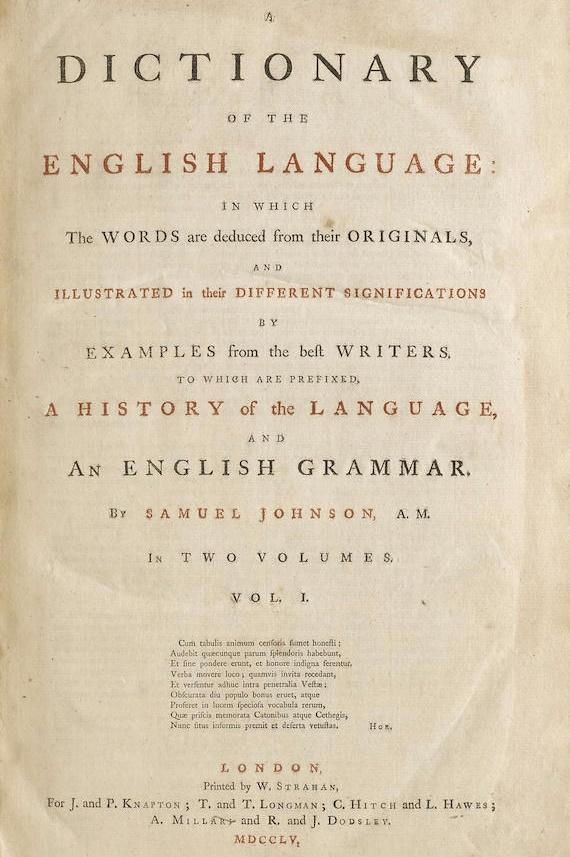Extrait de la préface [n.p. ; texte aux pp. 10 & 16 du document numérisé]
 [...]
[...]
The words which our authours have introduced by their knowledge of foreign languages, or ignorance of their own, by vanity or wantonness, by compliance with fashion, or lust of innovation, I have registred as they occurred, though commonly only to censure them, and warn others against the folly of naturalizing useless foreigners to the injury of the natives. [...]
There is another cause of alteration more prevalent than any other, which yet in the present state of the world cannot be obviated. A mixture of two languages will produce a third distinct from both, and they will always be mixed, where the chief part of education, and the most conspicuous accomplishment, is skill in ancient or in foreign tongues. He that has long cultivated another language, will find its words and combinations croud upon his memory; and haste or negligence, refinement or affectation, will obtrude borrowed terms and exotick expressions.
The great pest of speech is frequency of translation. No book was ever turned from one language into another, without imparting something of its native idiom; this is the most mischievous and comprehensive innovation; single words may enter by thousands, and the fabrick of the tongue continue the same, but new phraseology changes much at once; it alters not the single stones of the building, but the order of the columns. If an academy should be established for the cultivation of our stile, which I, who can never wish to see dependance multiplied, hope the spirit of English liberty will hinder or destroy, let them, instead of compiling grammars and dictionaries, endeavour, with all their influence, to stop the licence of translatours, whose idleness and ignorance, if it be suffered to proceed, will reduce us to babble a dialect of France.
If the changes that we fear be thus irresistible, what remains but to acquiesce with silence, as in the other insurmountable distresses of humanity? it remains that we retard what we cannot repel, that we palliate what we cannot cure. Life may be lengthened by care, though death cannot be ultimately defeated: tongues, like governments, have a natural tendency to degeneration; we have long preserved our constitution, let us make some struggles for our language.
Référence bibliographique
Johnson S. A Dictionary of the English Language, in which the words are deduced from their originals and illustrated in their different significations by examples from the best writers. To which are prefixed a History of the Language and an English Grammar. London: J. and P. Knapton; 1755.
2 vol. in-fol.
Accès au texte intégral (volumes numérisés sans OCR)
Johnson S. A dictionary of the English Language : in which the words are deduced from their originals, and illustrated in their different significations by examples from the best writers. To which are prefixed a History of the Language and an English Grammar : in two volumes. London: W. Strahan [etc.]; 1755. [Internet]. Pomorska Biblioteka Pedagogiczna w Gdańsku. [cité 30 août 2023]. Disponible sur: https://pbc.gda.pl/dlibra/publication/24130/edition/19407